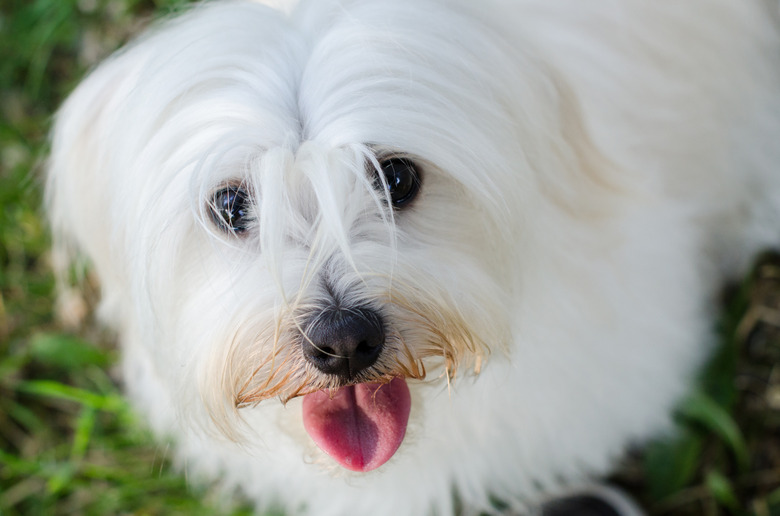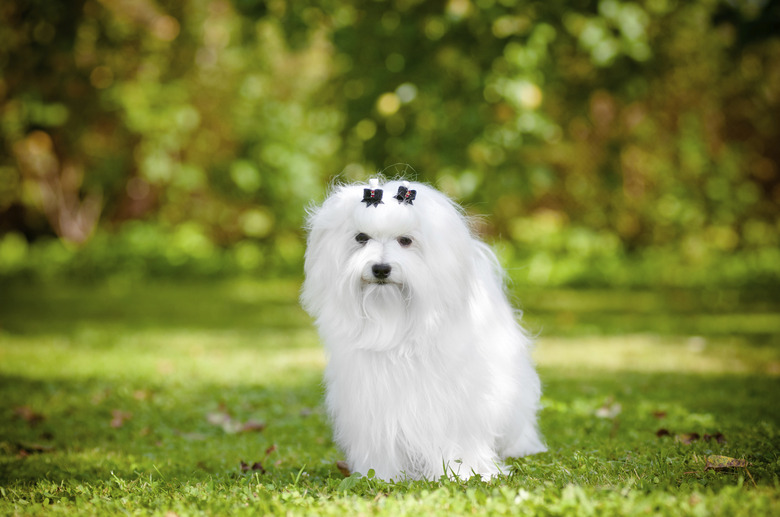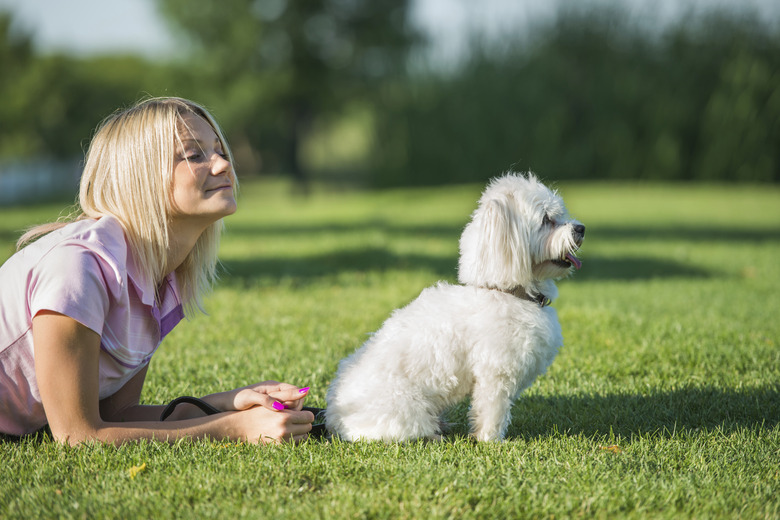What Are The Differences Between Maltese And Havanese Dogs?
The Havanese and Maltese are distant cousins and belong to the family of white dogs that descended from the Tenerife, including the bichon frise, the coton de tulear, and the Bolognese. The diminutive Maltese was once a popular trade commodity in his native Malta, while the Havanese charmed his way into the hearts of Cuban citizens, earning the title "National Dog of Cuba." While the two friendly dogs bear some similarities, their differences endear them to their fanciers.
Maltese Havanese sizes and colors
Maltese Havanese sizes and colors
When deciding between a Maltese or Havanese, consider the size and appearance of the dogs. The Maltese bears a flat, straight single coat that is white and devoid of kinkiness or curl. Shades of lemon or light tan are allowed, but not preferred, on the dog's ears, according to the American Kennel Club.
A Maltese should weigh no more than 7 pounds, although weights between 4 and 6 pounds are most desired by fanciers and the AKC. The long hair on the top of his head may be gathered into a topknot or left to hang naturally.
The curious Havanese has a double coat with a texture similar to silk. The outercoat is heavier than the undercoat, and is naturally wavy. No weight limit is set for the Havanese, and all colors are acceptable, according to the AKC.
Grooming the Maltese and the Havanese
Grooming the Maltese and the Havanese
Both the Maltese and the Havanese require frequent grooming to look their best. The flowing single-layer coat of the Maltese develops mats easily and should be brushed daily with a pin brush or stainless steel comb. A mixture of coat conditioner and water sprayed onto the dog's hair will prevent it from breaking when it is brushed. Your Maltese can enjoy a bath whenever he begins to look dingy, or once a week with a gentle shampoo.
Although the Havanese can sport several different coat styles, those owners who prefer their pet's locks long and flowing will need to invest time brushing the dog daily. Havanese dogs with long coats need weekly baths, but those with short puppy cuts can be bathed once every couple of weeks. Havanese coats also may be corded.
Maltese health problems
Maltese health problems
The American Kennel Club notes that the Maltese is generally a healthy dog, but occasionally can develop health problems. Shaker dog syndrome, a condition characterized by a dog's involuntary shaking, may occur when the dog attempts to move or rise to his feet. Medication can help to control the problem, but affected dogs may need lifelong treatment.
Like many small dogs, the Maltese may develop a luxating patella, which occurs when the kneecap pops out of place. If you're considering a Maltese for your next pet, be sure to visit a reputable breeder before you acquire one. The breeder can advise you about any potential health concerns in Maltese dogs and their puppies.
Havanese health problems
Havanese health problems
Like many purebred dogs, both Maltese or Havenese dogs can have health problems that are inherited or acquired. The Havanese is susceptible to Legg-Calve-Perthes disease, a condition in which blood supply to the head of the femur joint is restricted. This causes degradation of the joint. In severe cases, surgery is required.
Havanese dogs may develop congenital deafness. No treatment is currently available, but the dogs can be taught hand signals when they have lost their hearing. Havanese are also prone to cataracts.
Maltese or Havanese temperament
Maltese or Havanese temperament
Bred as a companion dog, the energetic Maltese is hyper-focused on his people and is highly trainable. He enjoys learning and performing tricks, and excels as a therapy animal. He may enjoy agility trials, obedience, and tracking. Due to his small stature, however, he may be a poor choice for families with small children, as his delicate bones can be injured easily.
The plucky Havanese enjoys the company of children and exhibits endless energy in play. Like his Maltese cousin, the Havanese loves to perform tricks and loves attention, occasionally seeking human interaction through naughty actions. Havanese dogs make good watch dogs due to their intelligence and sturdy build. They excel at obedience and agility. The Havanese doesn't like to be alone and may be difficult to housetrain.


